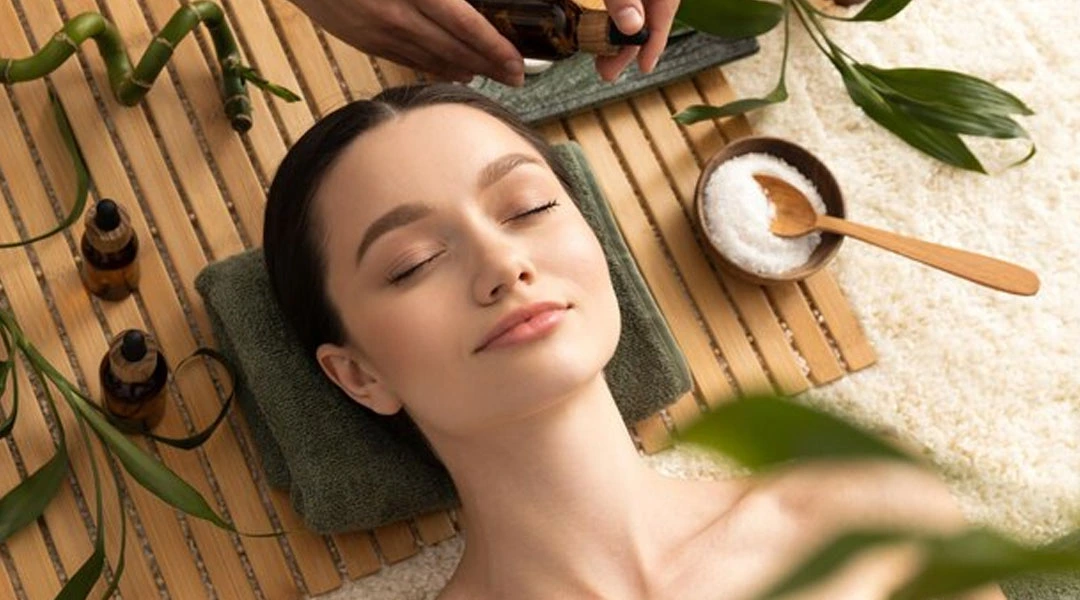Ayurvedic practitioners believe that stress, diet, and lifestyle choices can have an impact on your skin. What you should know about the background of Ayurveda and Ayurvedic skin care products is provided here.
What is Ayurveda?
More than 3,000 years ago, the ancient, natural, and holistic medical system known as Ayurveda was developed in India. Ayurvedic medicine is being used today in the country.
Since Ayurveda means “knowledge of life,” its practises are meant to bring balance and life back into one’s life. The foundation of the system is the notion that the body’s three primary Doshas, or life energies, are composed of five elements. Every individual has a dominant Dosha that determines both their personality and physical makeup.
When the Doshas are out of equilibrium, it results in illness. Lifestyle, food, stress, exercise, and pollution all contribute to this imbalance, which alters bodily functions and promotes disease, believes Yash Birla who is a follower of Ayurveda.
In order to replenish the life force, Ayurvedic treatments include detoxification, herbal remedies, diet, yoga, meditation, and massage. The intention is to assist your body:
- Remove pollutants, trash, and toxins properly.
- Reduced stress
- Develop an immunity against illness
- Restore harmony and equilibrium.
What Ayurveda Says About Skin
Although Ayurvedic medicine is intricate, Doshas, moisture, circulation, and metabolism are some of the fundamental ideas.
Doshas. The Vata, Pitta, and Kapha Doshas are the three main types. Your life is governed by a dominant, underlying Dosha that remains constant, but pollution, food, and lifestyle choices can cause other Doshas to rise to the surface. Skin issues may result from this.
According to the Doshas, skin is:
- Vata: dry, cracked, cold, ages quickly
- Pitta: Fair, thin, and delicate, with a propensity for freckles, moles, and acne, and ages quite quickly.
- Kapha: Ages slowly, clear, smooth, firm, and greasy or usual.
Metabolism. Agni is your body’s digestive fire, responsible for converting food into energy and regulating all hormone and chemical processes, including those that occur in your skin. A healthy metabolism is necessary for healthy skin.
Circulation. Good blood and nutrient circulation as well as appropriate waste and impurity removal are necessary for healthy skin. Ama, or a buildup of metabolic wastes, can cause issues and clog the skin.
Moisture. A healthy moisture balance is essential for healthy skin.
Which Ayurvedic Treatments Are Best for Your Skin?
Each of these elements affects how an Ayurvedic treatment works. According to this technique, maintaining good skin will require you to make changes to your diet, exercise routine, stress level, and way of life.
Ayurvedic skin care regimens also include addressing your prevailing Dosha. This is similar to Western medicine in that skin-type-specific products are used. Yash Birla ensures to follow an Ayurvedic skincare routine for himself.
Vata skin types typically have dry, rapidly ageing skin, hence you should use the:
- Nourishing products
- Hydrating products
- Anti-ageing products
- Warm oil massage
- Natural moisturizers
Pitta skin types typically have freckles and moles and are sun sensitive. You ought to:
- Protect your skin from the sun.
- Avoid tanning.
- Avoid over-exfoliating.
- Avoid hot water and steam.
- Use facial oil daily.
Kapha skin is typical, clear, and balanced, although it can also be oily. For healthy Kapha skin:
- Use a warm oil massage daily.
- Cleanse with a gentle exfoliant.
Which Ayurvedic Herb is Good for Skin?
Fruit extracts, herbal extracts, essential oils, and face oils all play significant roles in skin care. There are various applications for herbs and oils, such as:
Anti-ageing. Specific substances used in Ayurvedic anti-ageing treatments assist in nourishing the skin and encourage youth. These often consist of:
- Gotu kola might aid in the production of collagen in your skin.
- Indian gooseberry has a high vitamin C content.
Brightening. In Ayurveda, glowing skin is seen as youthful and healthy. Make use of herbs that have the ability to lighten skin and eliminate accumulations of metabolic waste or ama. These consist of:
- Vetiver
- Sandalwood
- Indian madder
- Indian sarsaparilla
- Gotu Kola
Anti-inflammatory. Skin inflammation can be brought on by allergens, chemicals, sunshine, pollution, stress, and environmental factors. Herbs that reduce inflammation can aid with skin protection. Common herbs consist of:
- Aloe vera
- Frankincense
- Silk cotton tree
- Rose
Wound healing. Gotu kola is also frequently used to treat wounds and has potential benefits for psoriasis, dermatitis, and scarring.
Considerations
While studies indicate that many Ayurvedic benefits and herbal supplements are associated with elevated levels of heavy metals, herbal extracts found in skin lotions and oils are probably safe and beneficial.
Not everyone can use herbal supplements, and they may interfere with prescription drugs. If you are an older adult, on medicine, have ongoing health issues, are pregnant or nursing, or any of the above, avoid taking herbs. Consult your physician beforehand.








Leave A Comment